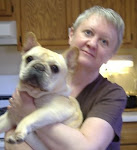…But what obesity can do for Jean?
The
overeating I’ve devoted so much of my life to can be called a coping skill, and
the excess fat it created cloaked me like shield, cushioning me from life’s
blows even as it caused me a host of other problems including shame. I couldn’t
admit to shame over what had happened to me (shame because I believed I had
caused the abuse), so in effect I transferred that shame to my weight. As if
there was a gremlin living inside me who insisted on hanging out a sign for all
to see: IT’S ALL JEAN’S FAULT. If I couldn’t be angry at my family, I could be
angry at myself.
At the
same time, the act of overeating helped to keep me numb, so I didn’t have to
feel deeply all of the stresses in my life. (I know I’m not alone in that one, because even people with a happy
childhood turn to food for comfort and numbing.) If I’d been fully conscious of
the all the distress in my life, what would my alternative have been? Probably
suicide, either directly (via carbon monoxide) or indirectly (like a single-car
crash or an “accidental” drug overdose).
Coping
mechanisms help us adapt to stressful situation, reduce or eliminate a
stressor, and/or change our own emotional reaction to a stressor. Not all
coping mechanisms are negative (that is, harmful to us or the people around
us). Proactive coping helps us reduce the stress of a difficult challenge by
anticipating what it will be like and preparing for how we’re going to deal
with it. Social coping helps us find support from others, and meaning-focused
coping helps us focus on the meaning of and lessons learned from stressful situation.
Good nutrition, exercise and sleep all make it easier
for us to cope with stress. And humor (a personal favorite) helps us turn
around a painful experience.
Another
benefit obesity has offered me is bariatric surgery, because taking such a
“drastic” means of reducing my weight put overeating on the shelf long enough
for me to get a clearer picture of my life, my problems, and what I need to do
about all of that. It’s as if obesity was the slow train to clarity, delivering
me to the weight loss surgery station with 90 pounds of baggage (to say nothing
of the emotional baggage). And there, without a mountain of food before me
every minute of every day, the coast was clear and my vision (internal and
external) also became clear.
At the
time, I didn’t know what I was getting myself into. When I promised my surgeon
to exercise for 30 minutes every day, I thought it was just for the sake of
burning calories. Little did I know that exercise would one day be at the top
of my list of stress- and depression-reducers. I won’t claim that surgery
erased all my bad habits, but for once in my life I was able to acknowledge
that they were indeed bad, unhelpful habits, and then to work on ways to change
them. This will sound oversimplified, but I can’t change a behavior until I
understand that it’s not working for me any longer. It’s the time-honored first
step of the 12-step tradition: first, I had to admit that I was powerless over
food, and that my life had become unmanageable because of it.
If I had
my life to do over again, would I again choose overeating and obesity as
survival techniques? Of course not. But I think I’ve done enough self-blaming
and punishment for my eating and obesity, and if I can gather together a few
crumbs of knowledge and understand from my bad old fat days, all the better. I
agree with Socrates than an unexamined life is not worth living. While it’s
gratifying to see that my books and articles help (or at least amuse) other
people, their greatest benefit is to me. Writing them is a form of the
meaning-based coping skill that I mentioned above. Meaningless events are
frightening to me. Reflecting on my experiences and deriving some meaning and
purpose from them reduces their power to hurt me. Although I joke that I’m the
World’s Greatest Living Expert on Everything (a title I inherited from its
originator, my mom), when I write articles like this one, I’m learning as I go
along. That’s a life-affirming action for me. When I run out of things to
learn, it’ll be time for me to rest forever.
I’ve been
sniveling a lot in the past 6 months because my life with the sleeve has been full of
surprises, many of them unpleasant. One of the things that’s making it possible
for me to keep putting one foot ahead of the other, painful as that might be,
is my belief that there are some lessons for me to learn from this experience.
And like many life lessons, I may not get the punch line until the end. Better
late than never.







